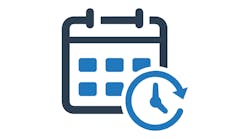Spills and leaks happen. Maybe you accidentally knock over a can of solvent or the diesel fuel day tank develops a leak. The first rule of leaks and spills is always report them. That isn't the first action, though.
If the spilled liquid is less than a gallon, it's probably safe to clean it up and then report the incident. However, if you can't identify the liquid and don't know the cleanup procedure, then don't attempt to clean it up. Mark its location and report it.
If you know what spilled and you also know it is corrosive, flammable, or highly toxic, leave the area immediately. Alert anyone else in the area, and report the spill or leak to the spill response team.
If you tackle a spill that you can't handle, you could not only expose yourself to injury but make matters much worse. Additionally, the time you spend mishandling the problem is that much delay before a properly trained and equipped team can contain and clean up the spill.


